December 9
John Malkovich
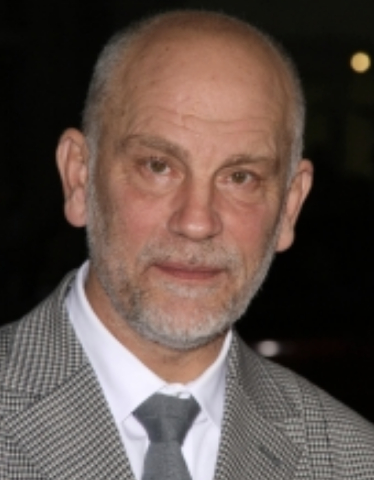
On this date in 1953, actor John Gavin Malkovich was born in Christopher, Ill., to Daniel and Joe Anne (née Choisser) Malkovich. His father was a state conservation director and publisher of Outdoor Illinois, a conservation magazine. His mother owned the Benton Evening News. He attended Eastern Illinois University and Illinois State University, majoring in theater. Malkovich joined Chicago’s Steppenwolf Theater in 1976. He won an Obie for his role in the 1983 play “True West.” He appeared in the Broadway revival of “Death of a Salesman” with Dustin Hoffman in 1984 and won an Emmy for the TV movie version.
Malkovich has made over 70 movies. His first film work was as an extra in Robert Altman’s “A Wedding” (1978). His real screen debut was as a blind man in “Places in the Heart” (1984). Other films include “The Killing Fields” (1984), “The Glass Menagerie” (1987), “Dangerous Liaisons” (1988), “Portrait of a Lady” (1996), “Con Air” (1997), “The Man in the Iron Mask” (1998), “Being John Malkovich” (1999), “Johnny English” (2003), “Burn After Reading” (2008) and “Changeling” (2008), which starred Angelina Jolie.
More recently he appeared in “Transformers: Dark of the Moon” (2011), “Warm Bodies” (2013), “Zoolander 2” (2016), “Unlocked” (2017), “Supercon” (2018) and “Velvet Buzzsaw” (2019). He also wrote and starred in “100 Years: The Movie You Will Never See” (2016), directed by Robert Rodriguez. The movie is locked in a vault in the south of France, not to be seen before 2115.
Malkovich was married to actress Glenne Headly from 1982-88. They divorced after Malkovich became involved with Michelle Pfeiffer on the set of “Dangerous Liaisons.” He met his long-term partner Nicoletta Peyran on the set of “The Sheltering Sky” in 1989. They have two children, Amandine and Loewy.
“I’m an atheist. I wouldn’t say I’m without spiritual belief particularly, or rather, specifically. Maybe I’m agnostic, but I’m not quite sure there’s some great creator somehow controlling everything and giving us free will. I don’t know; it doesn’t seem to make a lot of sense to me.”
— Toronto Star interview (Sept. 11, 2008)
Richard Carlile
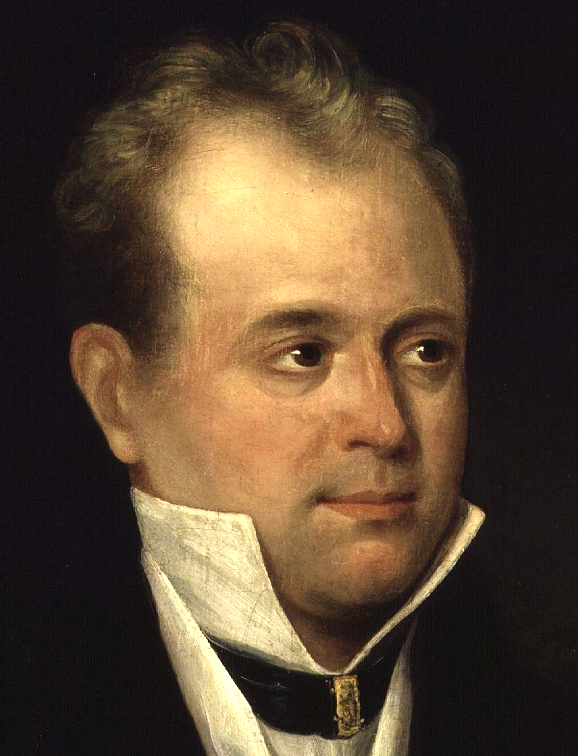
On this date in 1790, freethinker and tireless free-speech champion Richard Carlile was born in Ashburton, Devon, England. After attending charity schools, Carlile began working at 13. In 1813 Carlile moved to London. He was jailed for selling political satires in 1817. A freethinking deist, he published an inexpensive version of The Age of Reason by Thomas Paine and The Deist, a pioneering and popular freethinking weekly. Carlile was prosecuted for blasphemy and seditious libel in 1819 by the Society for the Suppression of Vice.
He became a cause celebre during two trials in the Guildhall where he defended himself. He was convicted and sentenced to pay £1500 and spend three years in prison. Carlile’s prison stay was doubled after he refused to pay the fine. He spent 1819-1825 at Dorcester prison, where he published freethought tracts with wide circulation and influence. He took over publication in 1852 of the weekly Republican, a major freethought periodical with a circulation of 4,000 to 5,000. Carlile’s wife Jane and his sister and many supporters were imprisoned for disseminating his tracts.
A campaign called the “war of the shopmen” continued until Carlile, his workers and vendors were released. Carlile opened up a shop to print and promote freethought literature and teamed up with “Rev.” Robert Taylor in the late 1820s on freethought speaking tours. Together they opened the Rotunda in London, a hub of dissent. Both men were arrested and convicted of various blasphemies in 1831. Carlile continued organizing and writing from prison with the help of Eliza Sharples, known as “Isis,” who became his common-law wife. They had at least four children.
Carlile spent more than a decade of his life in prison. He is remembered for his pioneering support for birth control, universal suffrage, parliamentary reform and free speech advocacy. After living for years in extreme poverty, he died in London at age 52. According to a contemporary account of his burial in a common grave, three of his sons protested the proceeding officiated by a Protestant clergyman, one noting that his father “passed his life in opposition to all priestcraft.” (D. 1843)
“The fable of a god or gods visiting the earth did not originate with Christianity.”
— Carlile, cited by Ira Cardiff in "What Great Men Think About Religion" (1945)
Hermione Gingold
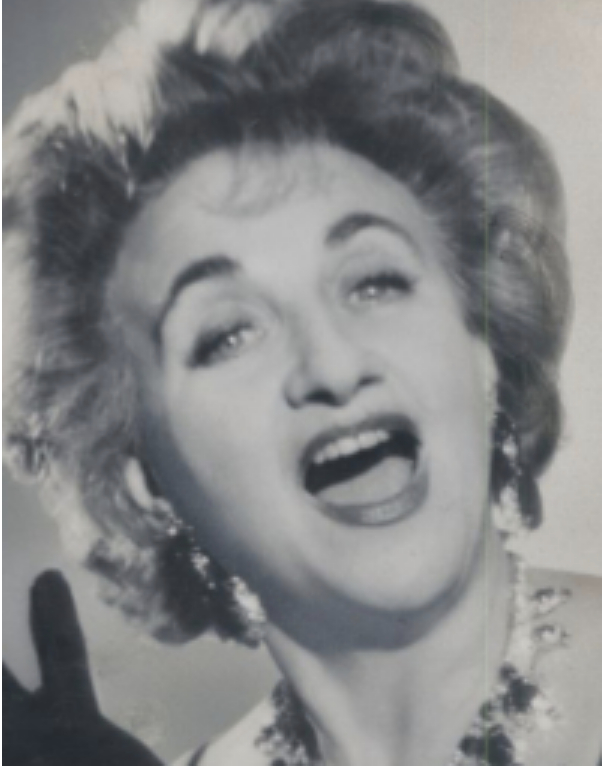
On this date in 1897, Hermione Ferdinanda Gingold, once dubbed “the funniest woman in the world,” was born in London. Her first name came from the queen of Sicily in Shakespeare’s “The Winter’s Tale.” Her career started with childhood appearances on the stage with a young Noel Coward. (Her mother, not impressed with Coward after inviting him to tea, warned Gingold, “You are never to ask that boy to tea again — he’ll come to a bad end.”) Gingold’s first stage role as a child was in the company of legendary stage actress Ellen Terry.
Gingold performed Shakespeare at London’s Old Vic and made her name in comedic revues for the BBC and on Broadway. She often wrote her own material. A critic once observed, “She can turn a melting smile into a baring of fangs more outrageously than anyone I know except Groucho Marx.” She perfected a withering stare and deadpan delivery and had a voice that was once described as “powdered glass in deep syrup.”
She is best known for the unforgettable duet with Maurice Chevalier in “Gigi” (captured in only two takes) and for portraying Eulalie Shinn, the mayor’s wife, in the film version of “The Music Man.” Gingold originated the role of Madame Armfelt in “A Little Night Music” by Stephen Sondheim. Director Hal Prince told her his only concern in casting her was whether she could pull off acting like a 74-year-old woman. “But Mr. Prince,” she told him, “I am 74.”
The ageless Gingold became the belle of Broadway at age 81 in “Side by Side with Sondheim.” In Walt Disney’s animated film, “Gay Pureee,” she and Judy Garland provided the voices of the female cats (lyrics by Yip Harburg). She was the postmistress of one-liners, recounted her friend Anne Clements Eyre in the prologue of Gingold’s autobiography. When a young man introduced himself to Gingold by saying he was in public relations, she quipped, “Oh I prefer to keep my relations private.” Eyre asked Gingold to be a godmother: “It’s only Anne,” Gingold wrote, “who would choose a godmother who isn’t religious, hates children, and lives three thousand miles away.” She mentioned several times in her autobiography that she didn’t believe in God.
She was married to the publisher Michael Joseph from 1918-26 and had two sons with him. The younger, Stephen, pioneered theater in the round in Britain. She was married to Eric Maschwitz from 1926-45. She died at age 89 in New York City. (D. 1987)
PHOTO: Gingold in the 1950s. CC 3.0
“Although we weren’t brought up to be any particular religion, we were taught to say our prayers. I remember one that ended, ‘Thy glorious kingdom, which is for ever and ever. Amen.’ These words made me scream, “I don’t want to be anywhere for ever and ever. It’s too much.”
— Gingold in her posthumous autobiography "How to Grow Old Disgracefully" (1988)
Kate Smurthwaite
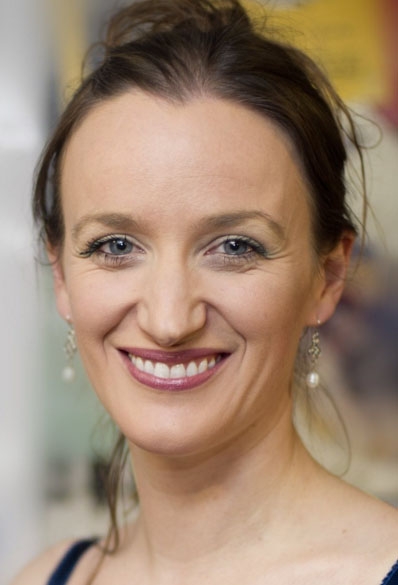
On this date in 1975, comedian Kate Smurthwaite was born in London. After growing up in Bury St. Edmunds, Suffolk, she studied mathematics at Lincoln College, Oxford, from 1994-97 and then worked in London and Japan as a convertible bond researcher for UBS Warburg, an investment bank. She started performing comedy professionally in 2004 and describes herself on her website as “a left-wing, feminist, atheist stand-up comedian and political activist.” (To wit: “Isn’t it weird when atheists call their child Christian? Surely it should be Godfrey?”)
She’s a regular contributor to mainstream print publications and to BBC and Sky News television and radio shows, both as a writer and commentator. In 2014 her science show “The Evolution Will Be Televised” was nominated for an award by the Center for Sustainable Practice in the Arts, a group that fosters business models that don’t have to rely entirely on donations from nonprofits and government funding. She has also taught stand-up at the City Academy in London.
BBC Radio 4’s “Four Thought” series in 2012 included a 15-minute program written and performed by Smurthwaite about sexist humor and sexism in comedy. She later responded to former BBC director of television Danny Cohen’s suggestion to have at least one woman on panel shows by calling it a highly progressive idea — if he’d had it in the 1950s: “This is 2016. There’s absolutely no reason why panel shows can’t have 50 percent women on all the time. There are loads of great female comedians. … Plus, when you have just one woman on, she becomes the representative of all womankind rather than just a guest, free to muck about.”
As a popular guest on BBC One’s religious debate show “The Big Questions” (sometimes representing the National Secular Society), Smurthwaite feistily stood up for nonbelievers. A 2010 clip that went viral under the name “Atheist Bitchslap” got 3.8 million views on YouTube. The question was “Does heaven exist?” Responding to a man who said every aborted child is in heaven, she said, “So we would be doing them a favor by aborting them then?” She went on to say, “Faith is believing in things without evidence, and I don’t do that because I’m not an idiot.”
PHOTO: by Jon Cartwright.
“A powerful well-supported movement of atheist feminists — of us Godless women — has the potential to free fifty-two percent of the world’s population from compulsory continuous motherhood and restrictions on everything from clothing to education, work to sex — as well as the financial and time resources that organised religion demands.”
— The Daily Telegraph (Jan. 7, 2016)
Kirk Douglas
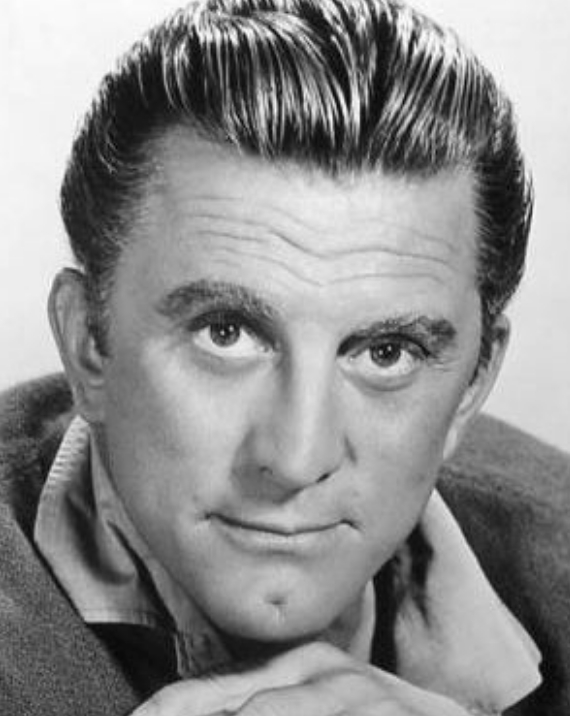
On this date in 1916, actor Kirk Douglas (né Issur Danielovitch Demsky) was born in Amsterdam, N.Y., the youngest child and only son in a family of seven children. His parents were Russian-Jewish immigrants who were both illiterate. He told People magazine (Oct. 3, 1988) that he grew up in a community afflicted with “a tremendous hatred of Jews” and that he was regularly attacked by Christian students. When he came home bloody, his mother told him, “As a Jew, you will have to be twice as good to get ahead in life.”
When he was 12, the Sons of Israel congregation offered to send him to a yeshiva to become a rabbi but he declined, already knowing he wanted to become an actor. He entered St. Lawrence University in Canton, N.Y. on a wrestling scholarship and after graduating in 1938 studied at the American Academy of Dramatic Arts. He made his Broadway debut as a singing Western Union boy in “Spring Again” (1941). He changed his name to Kirk Douglas, enlisted in the Navy and served as a communications officer with an anti-submarine unit.
His film debut was in 1946 in “The Strange Love of Martha Ivers,” playing Barbara Stanwyck’s alcoholic husband. He would appear in over 90 films during his career. The first of his three Best Actor Oscar nominations was for “Champion” (1949), followed by “The Bad and the Beautiful” (1952) and “Lust for Life” (playing Vincent Van Gogh, 1956). He received an Honorary Oscar in 1996 for 50 years as a creative and moral force in the motion picture community. Many saw his role as a Thracian slave in “Spartacus” (1960) as career defining.
He also was the film’s executive producer. Douglas later said it was perhaps his proudest professional accomplishment to have hired the blacklisted Dalton Trumbo to write the script. Between 1970 and 2008 he made nearly 40 movies with some of Hollywood’s biggest stars and appeared on numerous TV shows. He also wrote 11 books, including The Ragman’s Son (1988), the first of several autobiographies. In that he wrote “Judaism and I parted ways a long time ago, when I was a poor kid growing up” and that over the years “I tried to forget that I was a Jew.”
That same year (Oct. 3, 1988) he told People magazine: “When a dog dies, does he go to heaven? Why should we think we’re so special that we cannot just die? No, you only go around once and just hope you get the brass ring. The rest is ego.”
But after a 1991 helicopter crash in which he was severely injured and two others died, he started to reassess his Jewishness, writing about it in Climbing the Mountain: My Search for Meaning (1997). Part of the attraction besides spirituality was theatricality: “The Torah is the greatest screenplay ever written. It has passion, incest, murder, adultery — really everything.” (Jewish Journal, Sept. 18, 1997)
He married actress Diana Dill, a native of Bermuda, in 1943. They had two sons, actor Michael Douglas (b. 1944) and producer Joel Douglas (b. 1947), before divorcing in 1951. In 1954 he married movie producer Anne Buydens, a German native. They had two sons, Peter (b. 1955), and Eric (b. 1958), an actor who died in 2004 from an overdose of alcohol and drugs. Anne converted to Judaism before they renewed their wedding vows in 2004 and Douglas had a second bar mitzvah at age 83.
A severe stroke in 1996 affected his ability to speak, which gradually but not totally returned. His penultimate film role was in “It Runs in the Family” (2003), which also starred his son Michael, Michael’s son Cameron and Kirk’s first wife Diana. In 2016 he celebrated his 100th birthday at the Beverly Hills Hotel. He died at home in Beverly Hills at age 103. (D. 2020)
PHOTO: Douglas in 1963 at age 47; public domain photo.
“In general I am against religion because they do so much harm. There are things even in the Jewish religion that I hate and things that I like. But I’m proud to be a Jew.”
— Douglas interview, The Jewish Chronicle (Sept. 20, 2012)
